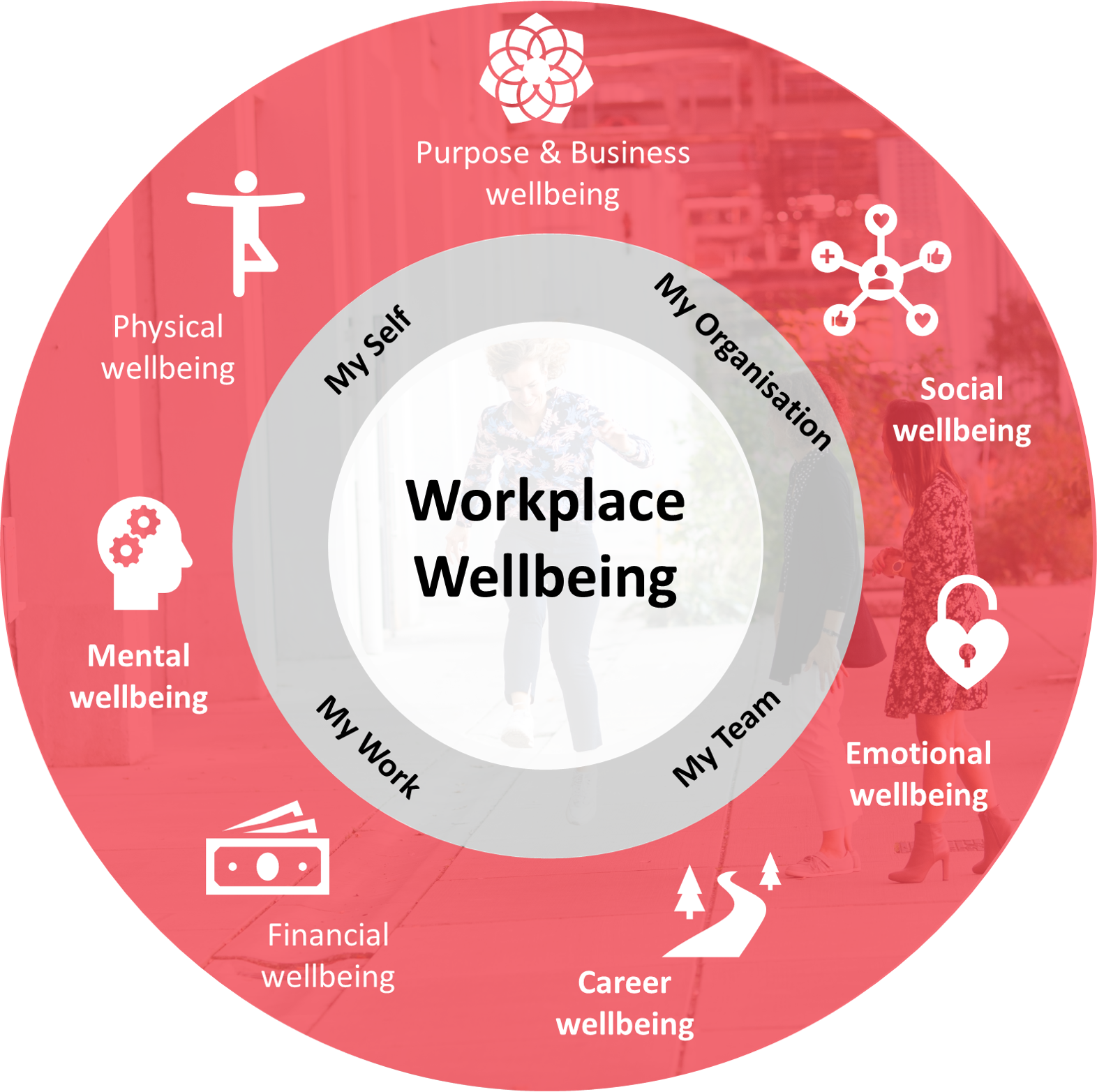Creating Your Good Life: Strategies For Wellbeing And Success

Table of Contents
Defining Your Good Life: Vision & Values
Before embarking on the journey of creating your good life, it's crucial to understand what it truly means to you. This involves identifying your core values and setting realistic, meaningful goals.
Identifying Your Core Values
Your core values are the fundamental beliefs that guide your decisions and actions. Understanding these values is paramount in making choices aligned with your authentic self and creating a life of purpose. Spend time reflecting on what truly matters to you.
- Examples of Core Values: Family, creativity, freedom, learning, health, contribution, adventure, spirituality, integrity, growth.
- Exercises for Identifying Values:
- Journaling: Regularly write about situations where you felt most fulfilled or frustrated. Analyze these experiences to identify underlying values.
- Value Clarification Exercises: Many online resources and worksheets offer structured exercises to help you prioritize your values.
Defining your personal values and core beliefs is the cornerstone of life purpose and creating your good life.
Setting Realistic Goals & Visions
Once you've identified your core values, translate them into actionable goals. Setting SMART goals – Specific, Measurable, Achievable, Relevant, and Time-bound – is a powerful technique to make your vision a reality. Creating a vision board or writing a detailed vision statement can further solidify your aspirations and keep you motivated.
- Examples of SMART Goals: "Run a 5k race in six months," "Save $5,000 by the end of the year," "Learn Spanish to conversational fluency by next summer."
- Steps to Create a Vision Board: Gather images, quotes, and affirmations that represent your goals and desired lifestyle. Arrange them on a board to visualize your aspirations.
- Benefits of Visualization: Visualization helps to program your subconscious mind, increasing motivation and enhancing your chances of success in life planning and goal setting.
Cultivating Wellbeing: Mind, Body & Spirit
Creating your good life isn't solely about achieving external goals; it's also about nurturing your overall wellbeing – mind, body, and spirit.
Prioritizing Physical Health
A healthy body is the foundation for a fulfilling life. Prioritizing physical health through exercise, nutrition, and sleep is crucial for energy levels, mental clarity, and overall wellbeing.
- Recommendations for Exercise: Aim for at least 150 minutes of moderate-intensity or 75 minutes of vigorous-intensity aerobic activity per week, along with muscle-strengthening activities twice a week.
- Healthy Eating Habits: Focus on whole, unprocessed foods, including fruits, vegetables, lean proteins, and whole grains. Limit processed foods, sugar, and unhealthy fats.
- Sleep Hygiene Tips: Aim for 7-9 hours of quality sleep per night. Establish a regular sleep schedule, create a relaxing bedtime routine, and optimize your sleep environment.
Nurturing Mental & Emotional Wellbeing
Mental and emotional wellbeing are equally vital for a good life. Managing stress, practicing mindfulness, and seeking professional help when needed are key components of self-care.
- Mindfulness Techniques: Meditation, yoga, deep breathing exercises can help reduce stress and increase self-awareness.
- Stress-Reducing Activities: Engaging in hobbies, spending time in nature, connecting with loved ones, and practicing gratitude are all effective stress management techniques.
- Resources for Mental Health Support: If you're struggling with your mental health, don't hesitate to seek professional help. Many resources are available, including therapists, counselors, and support groups.
Fostering Strong Relationships
Strong social connections are essential for a happy and fulfilling life. Nurturing relationships with family, friends, and community provides emotional support, a sense of belonging, and enhances overall wellbeing.
- Tips for Building Strong Relationships: Practice active listening, express appreciation, spend quality time together, and be there for loved ones during challenging times.
- Importance of Social Support: Having a strong support system can buffer against stress and adversity, fostering resilience and a sense of security.
- Strategies for Conflict Resolution: Learning healthy communication skills and conflict resolution strategies are crucial for maintaining strong and healthy relationships.
Achieving Success: Strategies & Mindset
Achieving success in creating your good life requires a growth mindset and effective strategies for time management, productivity, and continuous learning.
Developing a Growth Mindset
A growth mindset – the belief that abilities and intelligence can be developed through dedication and hard work – is crucial for overcoming challenges and achieving goals. Individuals with a growth mindset embrace challenges, learn from mistakes, and persist in the face of setbacks.
- Growth Mindset vs. Fixed Mindset: A fixed mindset believes abilities are innate and unchangeable, while a growth mindset views abilities as malleable and improvable.
- Strategies for Developing a Growth Mindset: Embrace challenges as opportunities for learning, view mistakes as learning experiences, and focus on effort and improvement rather than solely on outcomes.
Mastering Time Management & Productivity
Effective time management and productivity techniques are essential for balancing work, personal life, and pursuing your goals.
- Time Management Techniques: Time blocking, prioritization, the Pomodoro Technique, and Eisenhower Matrix are effective methods for managing time and tasks effectively.
- Productivity Tools and Apps: Numerous apps and tools can help with task management, scheduling, and prioritization.
Continuous Learning & Personal Growth
Lifelong learning and personal growth are essential for ongoing success and fulfillment. Continuously seeking new knowledge and skills expands your horizons, keeps you challenged, and enhances your ability to adapt and thrive.
- Ideas for Continuous Learning: Online courses, reading books and articles, attending workshops, mentoring, and engaging in self-directed learning projects.
- Examples of Personal Growth Activities: Developing new skills, exploring new interests, practicing mindfulness, and engaging in activities that foster self-reflection and personal development.
Conclusion
Creating your good life involves a multifaceted approach encompassing defining your values and vision, cultivating wellbeing across mind, body, and spirit, and employing strategies for achieving success. By prioritizing your physical and mental health, fostering strong relationships, developing a growth mindset, and mastering time management, you can create a life filled with purpose, joy, and fulfillment. Start creating your good life today by taking small steps towards identifying your core values and setting meaningful goals. Remember, building a fulfilling life is a journey, not a destination. Begin your journey towards creating your good life now! Start building your good life, achieving a good life, and discover your pathway to a good life today!

Featured Posts
-
 Legal Setback For Trumps Tariffs Analysis Of The U S Court Ruling And Its Effects On Canada
May 31, 2025
Legal Setback For Trumps Tariffs Analysis Of The U S Court Ruling And Its Effects On Canada
May 31, 2025 -
 The Searchers Farewell Glastonbury 2024 To Be Final Concert After Seven Decades
May 31, 2025
The Searchers Farewell Glastonbury 2024 To Be Final Concert After Seven Decades
May 31, 2025 -
 Giro D Italia 2025 Ita Airways Takes Flight As Official Airline
May 31, 2025
Giro D Italia 2025 Ita Airways Takes Flight As Official Airline
May 31, 2025 -
 Full 2025 Lineup Glastonbury And San Remo Festivals
May 31, 2025
Full 2025 Lineup Glastonbury And San Remo Festivals
May 31, 2025 -
 Rosemary And Thyme Recipes Flavorful Dishes For Every Meal
May 31, 2025
Rosemary And Thyme Recipes Flavorful Dishes For Every Meal
May 31, 2025
